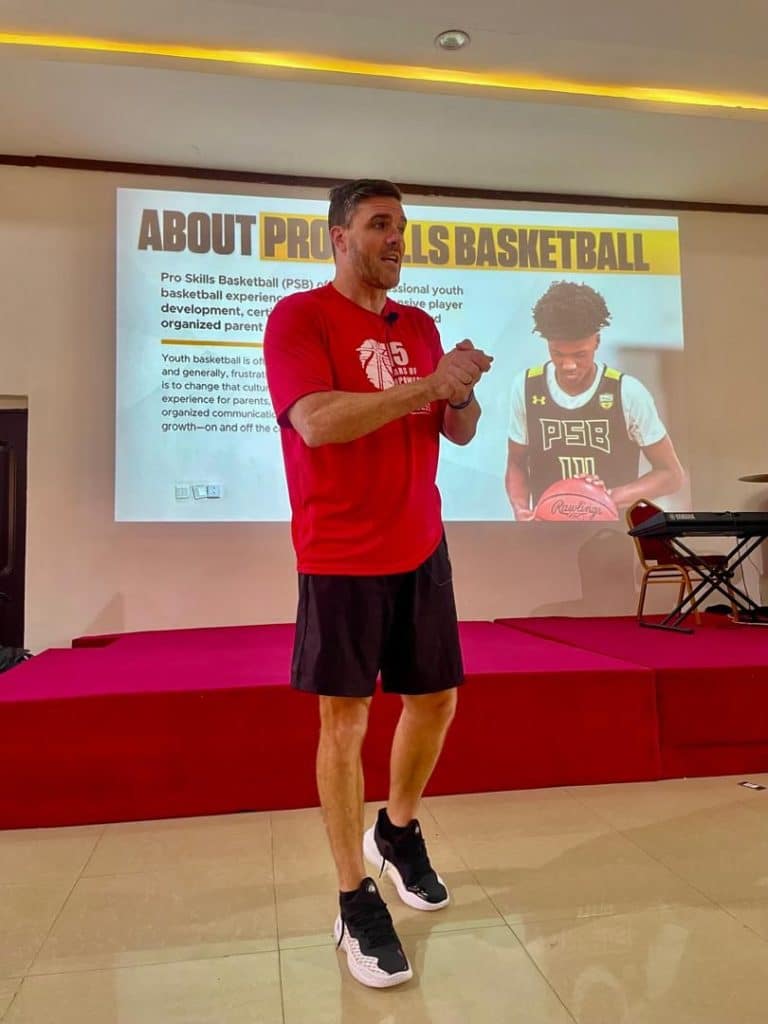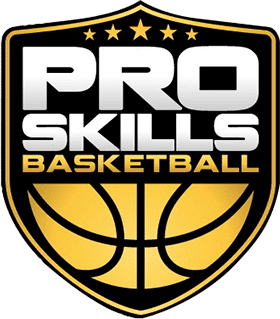
Last week, April 17th-27th, I had the amazing opportunity to travel to Benin City, Nigeria for a basketball mission trip with Access 2 Success Foundation (A2S), founded by my former Davidson teammate, Andrew Lovedale.
The beginnings of A2S started when Andrew and I were teammates at Davidson and he started to take worn shoes back to Nigeria in the summertime. Check out this ESPN article about Andrew and A2S from 2009 after Davidson’s elite 8 run with Steph Curry.
For the last 15 years, A2S has hosted basketball camps for some of Nigeria’s top young players as well as local beginners. But this year was special — it was the 15-year anniversary of the foundation, and they decided to celebrate with something bigger: an 8-team boys tournament, an 8-team girls tournament, and daily beginners’ clinics for the local kids.
I was honored when Andrew asked me to be a part of this event. The experience was eye-opening, humbling, and truly life-changing.
Benin City was a land of contrasts. Crumbling roads. Poverty everywhere you looked. Yet at the same time, an overwhelming sense of positivity, friendliness, faith, and joy. The people we met were some of the most optimistic and resilient I’ve ever encountered. It made me reflect deeply — not just on life, but on youth basketball back home in the U.S.
Here are some of my biggest basketball takeaways from the trip — and how they apply to players, parents, and coaches in American youth basketball today:

1. Talent is Everywhere — Opportunity is Not
One thing was obvious immediately: the talent level was off the charts.
At the tournament, I met a 6’9″ 14-year-old with impressive skill, a 6’7″ 14-year-old who ended up winning the boys MVP (while competing against players as old as 20), and a 12-year-old who was already throwing down dunks in the contest I helped judge.
On the girls’ side, it was the same story — players 6’4″ and taller everywhere you looked.
The physical gifts are there. What’s missing is opportunity.
In the U.S., it’s easy to forget how blessed we are — with access to gyms, courts, balls, shoes, trainers, tournaments, exposure events, and more. In Nigeria, most kids barely have a ball to use — yet the talent is undeniable.
2. Reps Matter: Facilities and Equipment Create Skill
My friend Andrew put it perfectly:
“Africans are known for being athletic, but sometimes struggle with skill and hands — and it’s not because they don’t work hard. It’s because they don’t have the facilities and equipment to get the reps in.”
In Nigeria, it’s common for 50 players to share one basketball. One ball. One hoop. Maybe one chance a week to actually shoot.
Meanwhile, in America, many kids have access to a hoop in their driveway and a ball of their own — and still struggle to appreciate it.
Skill development requires reps. Reps require opportunity.
We have every tool at our disposal — but are we using it?

3. Basketball is a Universal Language — and the Power of Fun
One thing that struck me was the pure joy of playing the game.
The whole reason A2S organized this tournament was simple: to let players and coaches have FUN.
- A2S covered all expenses.
- Every player got free uniforms, shoes, a bag, and more.
- No hidden agendas. Just the love of basketball and competition.
Watching these players and coaches — from so many different backgrounds — come together and share smiles, high-fives, hugs, and fierce battles reminded me:
At its core, basketball is a global language of connection, community, and joy.
No matter where you’re from, the love for the game is the same.

4. Positivity and Gratitude Over Everything
One of the most emotional moments for me came early in the week when we visited an IDP (Internally Displaced Persons) Camp. These are families forced to flee their homes in northern Nigeria due to violence from Boko Haram.
Yet despite unimaginable hardship, the kids we met radiated hope and positivity.
Later, some of these same kids came to our beginners’ camp — and I had the privilege of working with them on the court.
Similarly, the players in the tournament showed incredible gratitude — for the shoes they received, the courts they got to play on, and even just the chance to compete.
Positivity and gratitude were everywhere, even in the face of daily challenges many of us can’t imagine.
It made me realize: In American youth basketball, we sometimes lose sight of how fortunate we are — and how powerful gratitude can be, not just on the court, but in life.
5. Play Hard, No Excuses
Another huge takeaway: the toughness and effort were unreal.
The courts were rough — potholes indoors, blistering heat outdoors.
Many players wore borrowed shoes or sneakers way too small or way too big.
And yet — they played so hard. No complaints. No excuses. Just competing with everything they had.
It was inspiring to watch.
Lesson for U.S. players: Conditions will never be perfect. Focus on effort, attitude, and energy — and control what you can.

6. Investing in Character, Not Just Exposure
One thing A2S gets right — and something we can all learn from — is that they invest in people, not just players.
The basketball experience was incredible, but A2S is also deeply committed to education, mentorship, leadership development, and community-building. They’re planting seeds that will grow far beyond the court.
At Pro Skills Basketball, we believe in a similar philosophy. It’s not just about the next tournament or highlight reel. It’s about developing people of character who will succeed long after their playing days are over.
Final Reflection
This trip changed me. It reminded me of all the good things basketball can offer — the pure joy, the hard work, the relationships, the life lessons.
It also gave me a new lens for viewing youth basketball in the U.S. We are incredibly blessed with resources, opportunities, and support — but how we use those blessings is what really matters.
Gratitude. Hard work. Positivity. Joy. No excuses.
These are lessons that transcend borders, backgrounds, and basketball courts.
And if a group of kids in Nigeria can embody them every day — so can we.



 »
»